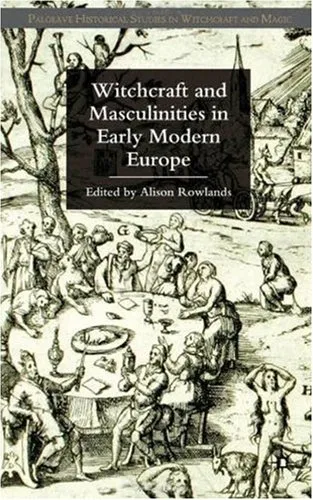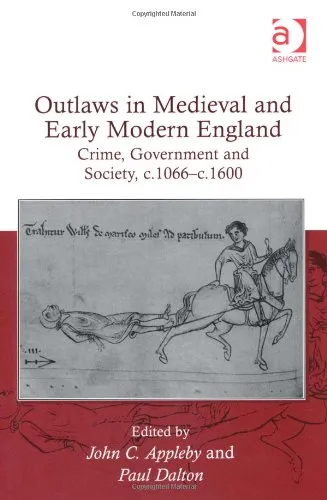Summary of "Sapiens: A Brief History Of Humankind--By Yuval Noah Harari"
3.8
بر اساس نظر کاربران

شما میتونید سوالاتتون در باره کتاب رو از هوش مصنوعیش بعد از ورود بپرسید
هر دانلود یا پرسش از هوش مصنوعی 2 امتیاز لازم دارد، برای بدست آوردن امتیاز رایگان، به صفحه ی راهنمای امتیازات سر بزنید و یک سری کار ارزشمند انجام بدینکتاب های مرتبط:
معرفی کامل کتاب "خلاصهای از کتاب «Sapiens: A Brief History of Humankind» اثر یووال نوح هراری"
کتاب «خلاصهای از کتاب «Sapiens: A Brief History of Humankind»» یک اثر بینظیر برای کسانی است که به دنبال فهم عمیقتر تاریخ بشر و تکامل آن هستند. این کتاب، دیدگاهی اجمالی اما جامع از پیچیدگیهای تاریخ بشر ارائه میدهد و مفاهیمی کلیدی از زیستشناسی، تاریخ، جامعهشناسی، و انسانشناسی را بررسی میکند. با خواندن این خلاصه کتاب، شما میتوانید به دیدگاههای کلیدی یووال نوح هراری در مورد نحوه تکامل انسان و تاثیرات آن در جهان امروز دست پیدا کنید.
خلاصهای از کتاب
کتاب اصلی، به قلم یووال نوح هراری، سفر حیرتانگیزی را در طول تاریخ بشر آغاز میکند، از زمانهای بسیار دور که Homo sapiens در میان دیگر گونههای Homo ظاهر شد، تا عصر مدرن. این اثر به بررسی چگونگی تکامل بشر از یک حیوان بیاهمیت به گونهای که توانست جهان را تغییر دهد، میپردازد. هراری سه انقلاب بزرگ در تاریخ بشر را که باعث تغییر و تحولاتی اساسی در رفتار و نحوه زندگی انسانها شد، توضیح میدهد: انقلاب شناختی، انقلاب کشاورزی، و انقلاب علمی.
در بخش اولیه، تمرکز بر انقلاب شناختی است؛ زمانی که Homo sapiens توانایی تصور و تفکر انتزاعی پیدا کرد. هراری توضیح میدهد که چگونه این انقلاب باعث به وجود آمدن فرهنگ، اسطورهها و همکاریهای اجتماعی پیچیده شد. انقلاب کشاورزی مرحله دیگری بود که Homo sapiens از شکارچی-گردآورنده به کشاورزی و سکونت در جوامع ثابت گذر کرد. این انقلاب، البته، مزایا و معایب خود را داشت. در نهایت، انقلاب علمی، آغاز دنیای مدرن را نشان میدهد؛ زمانی که انسانها توانستند طبیعت را بشناسند و آن را به نفع خود کنترل کنند.
کتاب همچنین به موضوعاتی مانند ظهور امپراتوریها، پیدایش پول، ظهور مذهب، و تاثیر نظام سرمایهداری بر تاریخ بشر میپردازد. این داستان غنی و چندوجهی به صورت واضح، قابل فهم و جذاب روایت شده است.
نکات کلیدی
- Homo sapiens تنها گونهای از Homo بود که توانست زنده بماند و بر زمین حکمفرما شود.
- تصویرسازی و زبان پیچیده مهمترین عواملی بودند که همکاریهای اجتماعی گسترده را ممکن کردند.
- رسانهها، مذهب، ایدئولوژیها و فرهنگ همگی محصول انقلاب شناختی هستند.
- انقلاب کشاورزی زندگی انسان را به طرز شگفتآوری تغییر داد، اما ممکن است کیفیت زندگی بسیاری را کاهش داده باشد.
- با انقلاب علمی، بشر توانست طبیعت را بهتر بشناسد، اما این شناخت با پیامدهای گاه و بیگاه اخلاقی و محیطی همراه بود.
جملات مشهور از کتاب
«این تخیلات مشترک هستند، مانند مذهب و امپراتوری، که باعث میشوند میلیونها غریبه بتوانند به یکدیگر اعتماد کنند و همکاری کنند.»
«Homo sapiens تنها گونهای است که داستانهای خیالی خلق میکند و به وسیله آنها دنیا را شکل میدهد.»
چرا این کتاب مهم است؟
«Sapiens» نه تنها یک کتاب تاریخی، بلکه یک تحلیل فکری جذاب است که سوالهای عمیقی درباره طبیعت و آینده بشر مطرح میکند. این کتاب به خواننده کمک میکند تا نه تنها به پیچیدگیهای تاریخ بشر فهم جدیدی پیدا کند، بلکه مسائل مهمی مانند اخلاق، هویت، مذهب، و فرهنگ را بهتر درک کند. همچنین این کتاب به ما یادآوری میکند که Homo sapiens توانسته است بر مشکلات زیادی غلبه کند، اما همزمان باید نقش خود در محافظت از کره زمین و جوامع انسانی را نیز به خوبی بفهمد.
این خلاصه برای کسانی که زمان کافی برای خواندن نسخه کامل ندارند و یا به دنبال مرور سریع ایدههای هراری هستند، بهترین انتخاب است. همراه با اصولی علمی، دیدگاهی تازه و اطلاعات جامع، این خلاصه فرصتی برای درک بهتر خود و دنیای اطراف ما به دست میدهد.
Introduction to the Summary of "Sapiens: A Brief History of Humankind"
The book "Sapiens: A Brief History of Humankind" by Yuval Noah Harari has captured the imagination of millions of readers around the world by providing a sweeping yet profound overview of the history of our species, Homo sapiens. It delves into who we are, where we came from, and where we as a species might be headed.
Dr. Harari, a historian and professor, elegantly combines history, science, anthropology, and philosophy to present a holistic and thought-provoking narrative. The book explores how humans evolved from insignificant animals to the dominant force on the planet. It explores pivotal chapters in human history, such as the Cognitive Revolution, Agricultural Revolution, the unification of humankind, and the Scientific Revolution, while linking our past to our present and potential future.
This summary provides a concise yet detailed breakdown of the ideas and arguments laid out by Harari in his captivating work. By distilling the complex topics into more digestible insights, this summary enables readers to quickly grasp the main concepts of the book. Whether you’re a first-time reader seeking an overview or someone revisiting the ideas for a deeper understanding, this guide serves as a handy reference.
This summary also presents key takeaways that highlight the transformative ideas advanced in the book. You will find famous quotes from Harari that encapsulate the essence of his arguments, along with an exploration of why this book matters today.
Humanity’s story, as Harari outlines, is far from over. By looking at our past, he grants us the insight to shape our future. This guide celebrates the monumental achievement of "Sapiens" by condensing its key messages while acknowledging the depth of its original narrative.
Join the journey to discover how humanity rose to conquer the globe, the forces that shaped our societies, and the possibilities that lie ahead. Let this summary serve as a window into Harari’s masterpiece and an invitation to reflect on the story of us all.
Detailed Summary of the Book
"Sapiens" begins by examining the early stages of our species’ journey. Around 2.5 million years ago, there were various human species, such as Neanderthals and Homo erectus. However, around 70,000 years ago, Homo sapiens experienced the Cognitive Revolution – a mysterious and transformative period where they developed imagination, complex language, and the ability to cooperate flexibly in large groups. This gave sapiens a competitive edge, enabling them to outlast other human species and spread across the globe.
The book then explores the Agricultural Revolution, which began roughly 10,000 years ago. During this period, humans transitioned from being hunter-gatherers to settling in villages and cultivating crops. While this allowed for population growth and technological progress, Harari argues that it also led to the loss of individual freedom and the entrenchment of power hierarchies. He provocatively states that humans domesticated themselves as much as they domesticated plants and animals.
The unification of humankind is another powerful theme in the book. Harari examines how shared beliefs, religions, and systems such as money, nations, and empires allowed billions of people to cooperate. Through storytelling and myths, humans created structures of shared meaning that enabled large-scale societies to form and flourish.
Finally, the Scientific Revolution, which began in the 16th century, transformed not only our understanding of the world but also the speed of human advancement. Harari explains how curiosity and discovery drove humanity to dominate nature, develop capitalism, and seek happiness in new ways. He ends the book by questioning what lies ahead, including the effects of biotechnology, artificial intelligence, and the potential for humans to evolve into an entirely new "post-human" species.
Key Takeaways
- Homo sapiens succeeded due to their ability to cooperate and create shared myths and belief systems.
- The Agricultural Revolution marked a shift in human history, but it had both positive and negative consequences.
- Human societies thrive on shared ideas such as religion, money, and nations, which do not exist in the natural world but are powerful constructs.
- The Scientific Revolution redefined humanity’s place in the cosmos and accelerated innovation, but it also introduced challenges like ecological damage.
- The future of humanity might include a transition into a post-human era, with profound ethical and existential implications.
Famous Quotes from the Book
"Culture tends to argue that it forbids only that which is unnatural. But from a biological perspective, nothing is unnatural."
"You could never convince a monkey to give you a banana by promising him unlimited bananas after death in monkey heaven."
"We did not domesticate wheat. It domesticated us."
"Happiness does not really depend on external conditions, but rather on the correlation between external conditions and internal expectations."
Why This Book Matters
Harari’s "Sapiens" matters because it challenges how we view ourselves, our past, and our future. It combines history with deep philosophical inquiry, prompting readers to think critically about the human story. The book is a call for mindfulness in considering how far we have come as a species and the paths we might choose moving forward.
In a rapidly changing world marked by technological advancements, globalization, and ecological crises, Sapiens serves as a crucial reminder of our shared origins and responsibilities. It asks pressing questions about the sustainability of our current trajectory and the ethical dilemmas that will shape the future. Humanity’s ability to reflect, adapt, and innovate begins with understanding its history, and Harari gives us the tools to do so.
دانلود رایگان مستقیم
شما میتونید سوالاتتون در باره کتاب رو از هوش مصنوعیش بعد از ورود بپرسید
دسترسی به کتابها از طریق پلتفرمهای قانونی و کتابخانههای عمومی نه تنها از حقوق نویسندگان و ناشران حمایت میکند، بلکه به پایداری فرهنگ کتابخوانی نیز کمک میرساند. پیش از دانلود، لحظهای به بررسی این گزینهها فکر کنید.
این کتاب رو در پلتفرم های دیگه ببینید
WorldCat به شما کمک میکنه تا کتاب ها رو در کتابخانه های سراسر دنیا پیدا کنید
امتیازها، نظرات تخصصی و صحبت ها درباره کتاب را در Goodreads ببینید
کتابهای کمیاب یا دست دوم را در AbeBooks پیدا کنید و بخرید
1811
بازدید3.8
امتیاز0
نظر98%
رضایتنظرات:
3.8
بر اساس 0 نظر کاربران
Questions & Answers
Ask questions about this book or help others by answering
No questions yet. Be the first to ask!


![Mathematics and Its History [FIXED]](https://s3.refhub.ir/images/thumb/Mathematics_and_Its_History__FIXED_29231.webp)












